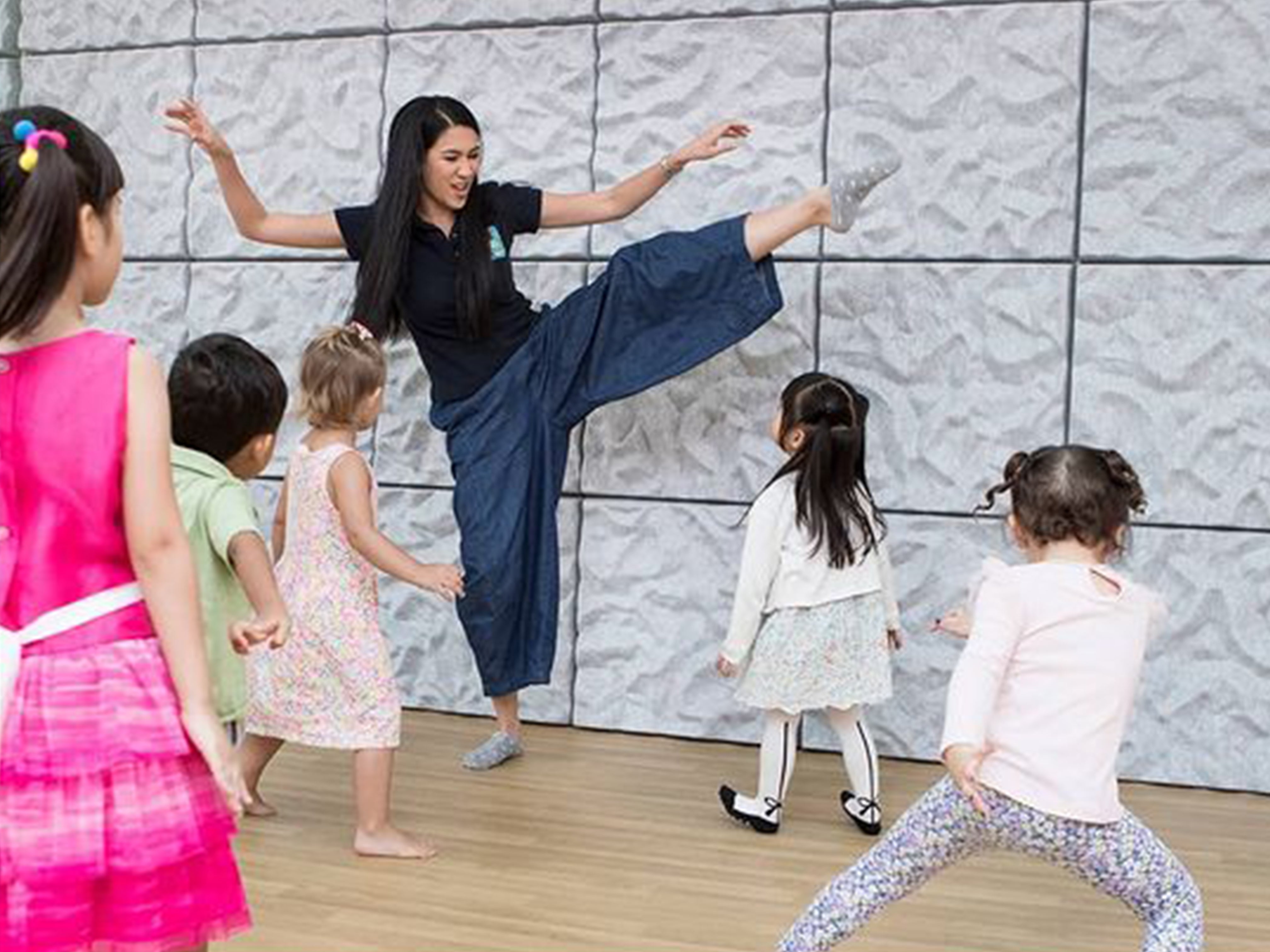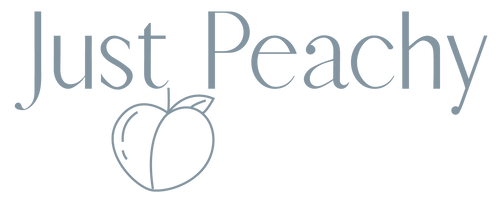A holistic approach to education focuses on all aspects of a child's development - psychological, social and emotional. The idea behind this approach is that every child has unique skills and needs and can be taught in a more engaging and natural way. In our next Body Talk series, we talked to Crisel Consunji, a Filipina-Hong Kong actress, singer, early childhood educator and Founder and Head of Learning and Development of Baumhaus. Crisel offers her insight into the challenges families encounter, what decisions should families make and how we can encourage children to maximise their full potential.
What inspired you to create Baumhaus, what are your aspirations for the business and how does the facility or program serve the community?
The reason we built Baumhaus was that we realised that what parents need the most is a community. Before I was running my own Kindermusik classes, I realised that the bigger value for the families wasn't the lessons or activities themselves, but rather, the community that you build and the people who support what you believe in. The real value of the program was how it was empowering parents to be the kind of parents they want to be. We built Baumhaus because we discovered that you really grow as a family if you are around other families and professionals who live out the values that you want - which means respect for children, openness for acceptance in different ways to be a parent and learning from each other.
Parenting is never a one-way thing whereby some expert tells you what to do. You are the expert for your child and that's what we wanted to bring out. Every child is different, every family situation is different, and what we need is respect. If you want to kind of liberalise the experience, you empower the parents to speak out and share their own experiences with others. Baumhaus is a community platform for us where our families could actually build their confidence in the way they want to be and the way they want to raise their families. There's no right or wrong way to be a parent because you have many different choices, and every parent needs to make a decision on what their values are, and we are here to support and give tools aligned with the particular value they believe in.

You obtained an M.A. in Global Politics and later an M.A in Early Childhood Education and Teaching. How did you become involved in the Kindermusik movement?
They were ten years apart. I thought I would be in a different field, but I realised I did Political Science because I believe in building a community - doing social work and empowering marginalised groups. And then I realised that what we should be working on is the unit of the family. If you want to change cultures and evolve social mindset, we need to actually invest in our youth, who will become the citizens of tomorrow, by empowering the families that will make them grow.
I got involved in Early Childhood Education to connect to a wider audience. Early Childhood Education is such a broad field, and there needs to be a lot more information being shared with families so that they can pick what kind of family and what kind of philosophy they would like. I got involved in Kindermusik because I wanted to do more arts-based education. Back then, the first age group I was teaching was high schoolers and then I went to Hong Kong to work for Disney. When I left, I retrained as a teacher and came across Kindermusik. There was so much more to the arts than just confidence building and creativity - it was about using the arts as a primary medium and language that children can express themselves.
Like many infants and toddlers, their first experience of communication is babbling, singing and moving. I fell in love with the Kindermusik program because it's more than just fun. We're helping parents understand how their child is connecting and expressing what they want to say through music and arts.
 Teacher Crisel engaging her student in a conversation
Teacher Crisel engaging her student in a conversation
At Baumhaus, you take a holistic approach to creative art learning. Can you explain what this means and how this benefits the development of children?
Holistic learning is about looking at the child's milestones as a whole. In our modern society, there's a tendency to count children's milestones separate from one another. We always hear parents saying, “My child isn't talking or my child isn't walking”. Holistic learning is looking at the child's personality, and their different ways of expressing themselves in different learning domains - logical, cognitive, physical, language, social, emotional and creative side. It’s a child-centred relationship whereby you build upon what the child is giving you. Even if we're singing a song or playing the drum, we're actually learning math or language skills. It's more than just music and fun. The children are learning to count without them realising it.
Under the current COVID restrictions in certain parts of the world, children are missing out on tactile learning. How can we ensure our children continue to thrive in their physical, mental, and emotional development?
Children are very tactile and very mobile. In many parts of the world like Hong Kong, there's this belief that children should be able to “behave and sit still” but actually their bodies and brain grow when their bodies move. Tactile learning can be achieved anywhere and anytime. Even if you're at home and you're baking or making a pizza together, that's already tactile learning. It’s fun and amazing that many parents are able to do these sensory play activities, but not all family has the luxury of time and attention when you're all locked at home. I would recommend families to start with what interests them.
Part of being a parent is being authentic and comfortable with what you do. If you enjoy baking, get the child to sit with you. If it’s something you're passionate about, it transfers to the child and the child will want to try it. Parents should not put any pressure on themselves. Learning is not about giving children a task, it's about enjoying the process.

Teacher Crisel teaching her students Performing Arts
Raising toddlers is one big steep learning curve. You’ve recently published a short video on ‘Managing toddler behaviour’ as part of your #BaumhausATHome series. During the global pandemic, what common challenges are you seeing amongst families raising young toddlers?
It's very difficult to be stuck at home. There's a lot of stress and pressure that families are experiencing - anxiety for the health and safety of their children. It’s challenging for anyone to be calm and much less to manage their day because parents feel the pressure to plan out their children's days and juggle many different responsibilities.
The reason why we have different social activities and community exercises is to help parents break down a child’s day. When you're home, it's hard to make those distinctions. When is eating time, when is sleeping time, and when is playing time on top of the much stress that parents are experiencing. Scheduling a routine for mealtime or knowing what activity to do with your child becomes a challenge because parents and their children lose the concept of time for the day. In my opinion, the biggest issue is the pressure that families face because they feel like they needed to attend to their children every single minute. But actually, these things could be solved by managing your time and your children’s time as well.
If there were only five rules of parenting you can share to help navigate the toddler years, what would they be?
1. Parents should be easy on themselves.
Navigating through your toddler years means that you need to understand how you and your child work together. And that's very different. Parenting tips are not one size fits all. Children are so different and the parent's relationship with children is so different. As with any relationship, whether it's with your spouse or your colleague or your friends, it's a trial and error. Nobody gets it right 100% and nobody knows their children better than them.
2. Always communicate with your kids, even if they're newborns.
Trust that your tone, your message, and your body language conveys to the child what you mean. Always be politely honest about your feelings. If you're not happy about something, you can tell your child how you're feeling about it. I think people confuse positive parenting with being always nice and sweet and kind. You can be firm with your children and teach your children to be honest with their feelings and try to be empathetic about others as well.
3. Be clear with yourself and your family about what your philosophy and boundaries are.
We cannot follow other people's prescriptions for their families. Some people will tell you to be more strict on some rules - no! You have to decide among the family what your non-negotiables are and everybody in the family has to be in line with it. A toddler will always test your limits and the family needs to be the same in their language and the way they handle it. Do not confuse the child by having one response from mommy and another response from daddy.
4. Build firm boundaries.
Positive parenting doesn't mean giving in to your child. It means that you care and you present boundaries to your child in a way that respects them. Tell your child what is acceptable or not.
5. Help children understand the concept of consequences.
Consequences are not punishments, but they are a certain sense of resilience that children need to learn. Children need to understand what happens when they do something and parents need to realise that it's not about punishing them, it's about helping children accept that not everything goes their way.
Your baby arrived and you'd like to give cloth diapers a try. What are your motivations for trying cloth diapers?
If you really think about it, it's the environmental impact. In a place like Hong Kong, we have the resources to do it better. So why not try? Not everybody has the ability to transform their whole lifestyle, but there are ways for us to adjust and be more aware of the costs to the environment. Aside from that, there are so many chemicals out there now. We have to be responsible and we have to be advocates for our own children as they can't make decisions now. We can't be perfect, but wherever we can do something we should.
I'm surprised that people feel like cloth diapers are an alien concept when many of our generations grew up with them. My mom used cloth with pins. What’s also great about cloth diapers is it is a cost-saving alternative for many families. It’s not a luxury product.
Follow Crisel:
Follow Baumhaus:


